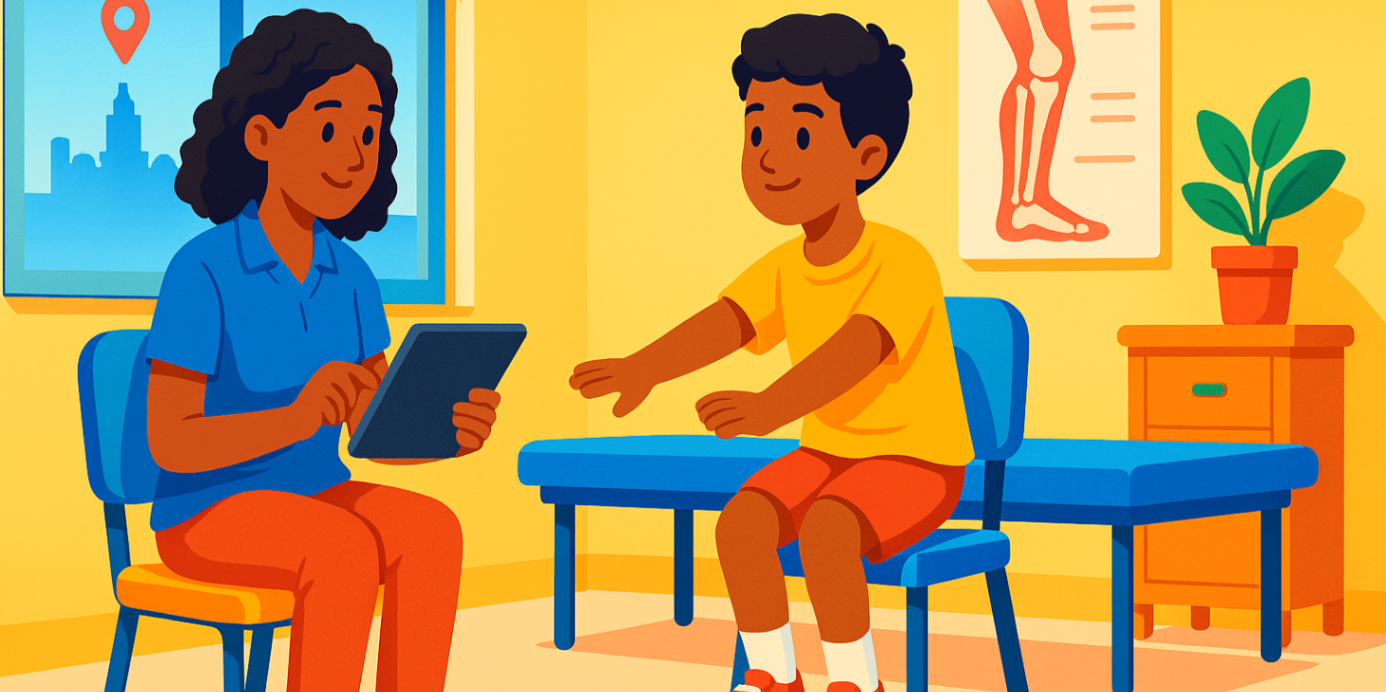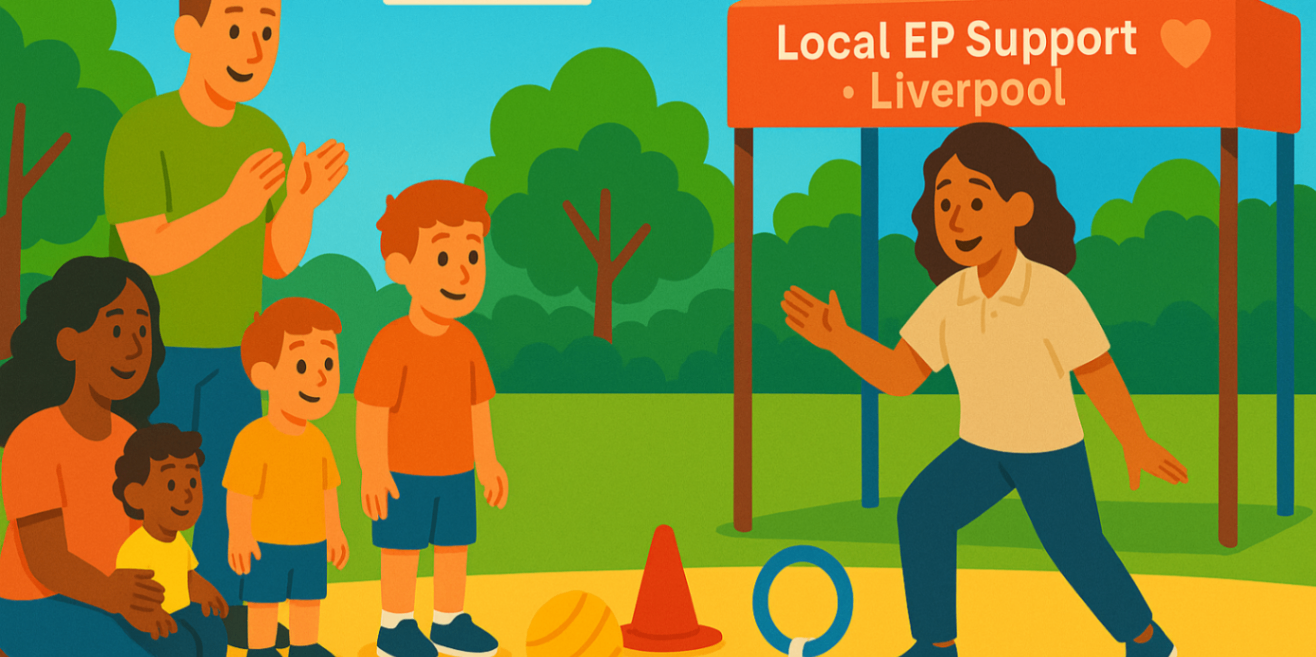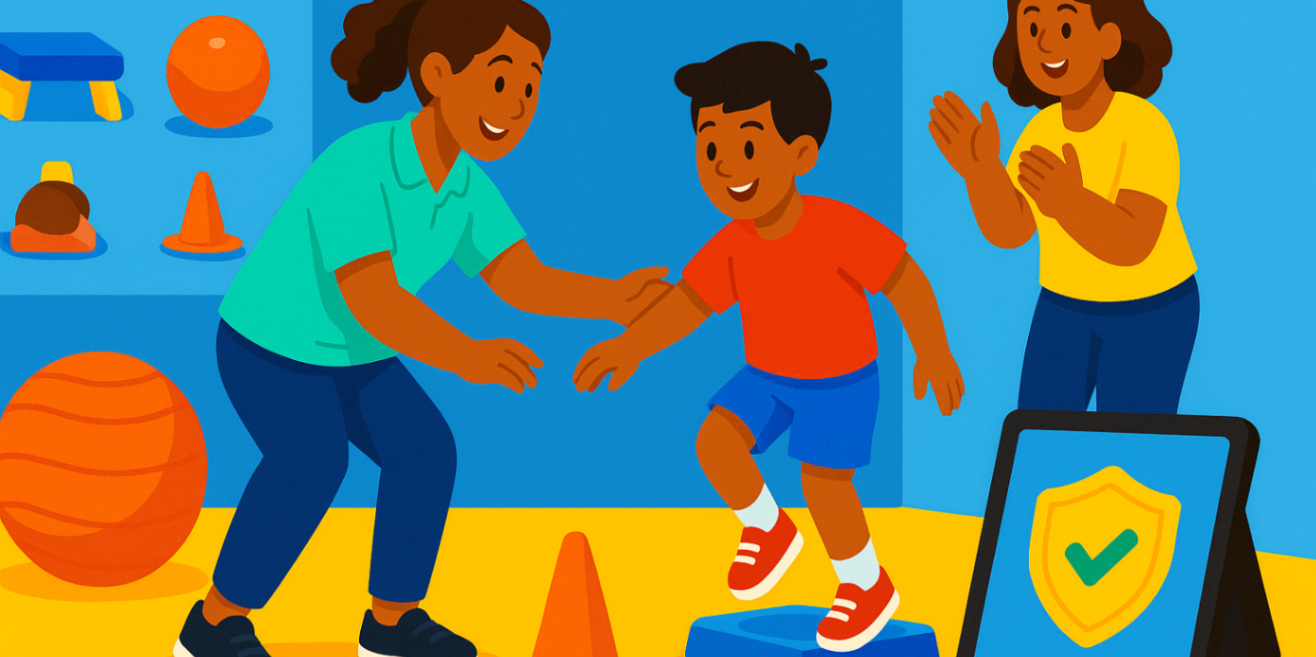
discover exercise physiologist liverpool for child growth
25 August, 2025
Introduction
Helping your child grow in a healthy way is important. An exercise physiologist can give you expert help. They know how the body moves and help improve your child’s physical growth and motor skills. This will also be good for their overall health. In Liverpool, these experts work with kids who need support because of developmental issues. They use science-based ways to help children be more active and healthy. An exercise physiologist can guide you if your child needs help with their development. Learning about what they do is the first step to helping your child reach their full strength and movement skills.
Key Highlights
-
An exercise physiologist plays a vital role in supporting the physical development and well-being of children in Liverpool.
-
These professionals use principles of sports science and clinical exercise physiology to create tailored programs.
-
They rely on extensive academic qualifications and practical experience to manage various childhood conditions.
-
Services include improving motor skills, promoting healthy habits, and managing developmental or physical disabilities.
-
Accredited exercise physiologists in Liverpool collaborate with NDIS and allied health teams to provide comprehensive care.
-
Finding local support can set your child on a path to lifelong health and confidence.
Role of Exercise Physiologists in Liverpool’s Community
 So, what does an exercise physiologist in Liverpool do? These are people with a university degree, and they know a lot about exercise physiology. They use their skills to plan safe exercise programs that help people. These programs use sports science plus clinical exercise physiology so people can manage illness, get better after injury, and live a better life.
So, what does an exercise physiologist in Liverpool do? These are people with a university degree, and they know a lot about exercise physiology. They use their skills to plan safe exercise programs that help people. These programs use sports science plus clinical exercise physiology so people can manage illness, get better after injury, and live a better life.
At daar, our accredited team creates safe, personalised exercise programs that focus on children’s goals. From motor skills to strength and coordination, we ensure every child receives care that supports both body and mind.
Need a clinician fast? Read How to Find an Exercise Physiologist — Near Me, Today for practical steps to secure same-week appointments and telehealth alternatives.
Supporting Children’s Physical Growth and Motor Skills
An exercise physiologist plays a big role in helping children grow strong and healthy. They use proven methods to make activities that match the main steps of how kids develop. If the child has trouble with coordination or strength, they really can make things better. These experts guide the child with exercises that mix fun and useful movements.
Children who struggle with coordination, strength, or confidence benefit from tailored movement programs. Our Liverpool exercise physiology sessions are designed to:
-
Build muscle and bone strength.
-
Improve core skills like running, catching, jumping, and throwing.
-
Boost confidence and enjoyment in physical activity.
-
Encourage lifelong healthy habits through fun, engaging exercises.
Promoting Lifelong Healthy Habits in Early Years
One important role of an exercise physiologist is helping young people start healthy routines that last. When these habits begin early, they help stop health problems from showing up as the years go by. Exercise physiologists work to make being active fun and easy. They want kids to see moving around as something normal and good for you to do every day.
The work they do is about learning over time. When kids connect joy with exercise from the start, moving just feels right. An exercise physiologist does more than just run a fitness session. They help kids and their families understand why each activity matters. This helps everyone learn. The end goal is for people to want to be active on their own.
They do this by:
-
Creating playful games that fit kids’ ages and help them move more
-
Giving simple goals so kids feel proud when they complete them
-
Sharing ideas with families to help everyone add more movement each week
For an evidence-based look at how exercise physiology supports motor skills and growth, see How Exercise Physiology for Kids Supports Growth.
Qualifications and Professional Standards for Exercise Physiologists in Australia
 To work in Australia, an exercise physiologist needs to meet high standards. They have to get the right academic qualifications, which may include postgraduate study in a related discipline. Most international students study for a bachelor's degree in exercise and sports science at a university that is known. This helps them learn about human physiology and movement science.
To work in Australia, an exercise physiologist needs to meet high standards. They have to get the right academic qualifications, which may include postgraduate study in a related discipline. Most international students study for a bachelor's degree in exercise and sports science at a university that is known. This helps them learn about human physiology and movement science.
After their degree, they must finish approved training. They also need to sign up with Exercise & Sports Science Australia (ESSA). ESSA is the main body in charge of people in this field. To get this accreditation, the exercise physiologist has to do hundreds of hours of practical experience. They need to follow a strict code of conduct and a policy of consultation. This way, you can have confidence that you get help from someone good, and who does the work in the right way. 1
For parents in Liverpool, this post covers clinic, school and mobile sessions plus how local clinicians tailor programs to community needs — check Children’s Exercise Physiology in Liverpool.
Accredited Training Pathways and Certifications
The path to becoming an accredited exercise physiologist involves rigorous academic and practical training, including comprehensive exercise physiology studies that provide a detailed knowledge of physiology at the doctoral level. Aspiring professionals typically need a good honours degree in sports science or a related field. Many go on to pursue postgraduate academic qualifications, such as a Master of Clinical Exercise Physiology, to gain specialized skills.
These advanced programs provide detailed knowledge and hands-on experience. For example, a postgraduate course like the one at Liverpool John Moores University involves modules that combine theoretical learning with extensive practical training, preparing graduates to work in clinical settings. This level of accredited training ensures they can handle complex health conditions with confidence.
Here is an example of the in-depth subjects studied in a master's program:
|
Module Title |
Credits |
Focus Area |
|---|---|---|
|
Technical Training for Exercise Physiology |
40 |
Practical skills in patient assessment (ECG, blood pressure, CPEX) and extensive practical experience; academic development is emphasized throughout the program. |
|
Advanced Exercise Physiology |
20 |
Deepening knowledge of cardiovascular and metabolic responses to exercise. |
|
Pathophysiology |
20 |
Understanding disease processes and the role of exercise in treatment. |
|
Clinical Placement |
60 |
140 hours of hands-on experience in a clinical setting. |
Specialized Expertise in Pediatric Exercise Physiology
Working with children needs a different set of skills than what many use for adults. Pediatric exercise physiology is about understanding how kids' bodies grow and change. An exercise physiologist who works in this area knows that children have their own ways their bodies react to exercise. They are not just smaller adults.
This work means getting special training. These experts learn how to change exercises for every stage as a child grows. They also look at different conditions kids might have. Clinical exercise physiologists use certain research methods so they can keep up-to-date on the best ways to help kids with things like building motor skills, handling childhood obesity, and supporting children who have a disability. They make sure what they do is safe, right, and works well for each child.
Their special training lets these professionals make fun and inviting exercise plans that speak to kids. They know just how to build trust with children and talk with parents. They turn work and therapy into play so every exercise session feels good, for both the children and their families.
Key Services Offered by Liverpool-Based Exercise Physiologists
 Exercise physiologists in Liverpool help people of all ages to get better health and function. Their main service is to make programs that fit each person. These programs use ideas from sport science to help. There is no one plan for everyone. They make every plan after they look at your child's needs and goals.
Exercise physiologists in Liverpool help people of all ages to get better health and function. Their main service is to make programs that fit each person. These programs use ideas from sport science to help. There is no one plan for everyone. They make every plan after they look at your child's needs and goals.
They can help with long-term health problems. They also help kids who want to get better at sports or move forward in their growth. The services cover a lot of areas. An exercise physiologist in the city is there to guide you. They watch how your child does, change the plan when needed, and make sure the steps taken are safe and help your child get better.
Individualized Exercise Programs for Children
The cornerstone of exercise physiology for kids is making exercise plans that fit each child. Before starting a plan, the professional looks at the child’s abilities, needs, and goals. They use different ways to check things like strength, flexibility, balance, and coordination.
After looking at all this, they use ideas from scientific study. Then, they make a plan that matches what the child needs. The program is made to be fun and to change as the child gets better. This way, the work helps the child grow, but it is not so hard that it upsets them.
An exercise plan for a child could help with:
-
Building core strength, so posture and stability get better.
-
Developing both small and big movements, which help with coordination.
-
Improving heart fitness through games and fun activities.
-
Making flexibility and balance better to help stop injuries.
Collaboration with NDIS and Allied Health Teams
Effective healthcare for children needs different experts to work together. The exercise physiology teams in Liverpool often team up with others, such as physiotherapists, occupational therapists, and dietitians. This helps make sure every part of a child's health and growth is looked at and treated well.
The children’s healthcare teams talk with each other often. They share ideas and match their treatment plans to what is best for the child. This teamwork gives good help to the child and their family, and it can lead to better results. When children have needs that are more complex, this kind of working together is even more important.
Many clinics in Liverpool offer services as part of the National Disability Insurance Scheme (NDIS). If your child has an NDIS plan, you might be able to use it for exercise physiology services. You can call local places like Healthplex to ask if they accept NDIS and to talk about what your child needs.
This guide explains evidence, referral pathways and typical timelines for NDIS approval — see NDIS-Funded Exercise Physiology — Eligibility & Process to prepare your case.
Common Childhood Conditions Managed by Exercise Physiologists
Are you asking which childhood health conditions an exercise physiologist can help with? The work they do covers many areas, including developmental, neurological, and metabolic health conditions, such as high blood pressure. These experts use learning techniques to change exercises so the child can get the most from them. This can help kids who have a hard time taking part in regular sports or gym class.
An exercise physiologist's job is to make movement better for kids. It does not matter if the child has a developmental disorder or a lasting illness. The main goal is to give a plan that keeps the child safe and healthy. The idea is to help their body work better over time. This can also make their life better. The next parts will talk in more detail about some health conditions where an exercise physiologist helps.
Developmental Coordination Disorder and Autism Spectrum Disorder
Children with Developmental Coordination Disorder (DCD) find it hard to do motor tasks that many others do easily. This can make them seem clumsy, and they may have trouble with things like writing or playing sports. The exercise physiologist uses tests to find where they have the most problems. Then, they make plans to help these kids improve how they move and plan their actions.
For children with Autism Spectrum Disorder (ASD), exercise can help with more than just fitness. With the right program, kids can get better at moving, processing what they feel, and knowing their bodies. Being active may also help lower anxiety and boost focus. Exercise gives kids a way, that is positive and planned, to use their energy.
In both cases, the exercise physiologist is an important support unit. They make sure there is a safe place for kids. Everything is set up so they know what to expect and feel good trying new tasks. Kids get to learn at their own speed. The main goal is to build their confidence and help them feel good about moving. This helps kids join in more when they are at school or doing things with others.
Managing Childhood Obesity and Physical Disabilities
Childhood obesity is on the rise now, and an exercise physiologist is someone who can help manage this health issue in the best way. They make exercise plans that are safe, good for the child, and also fun to do. It's not just about weight. The main goal is to build healthy habits, help children feel better about themselves, and make them enjoy being active.
If a child has a physical disability, exercise is still very important. It helps keep their muscles strong and joints moving well. Exercise makes the whole body work better. An exercise physiologist uses their knowledge to make plans that work for each child’s needs. They can adjust exercises to make them safe and to help every child join in as much as possible, even if the child has health conditions.
An exercise physiologist works with the child and the family. They help the child get past anything that stops them from being active. They show children what they can do. It is about focusing on what the child can do, not what they can't. This support can help kids become more independent and improve their lives.
Conclusion & Next steps
An exercise physiologist in Liverpool can help your child grow stronger, healthier, and more confident through personalised, evidence-based programs. With NDIS-supported services available, now is the best time to take action.
Book your consultation with daar’s Liverpool team now and take the first step toward unlocking your child’s full potential.
Frequently Asked Questions
How do I book an appointment with a children’s exercise physiologist in Liverpool?
To book an appointment, the easy way is to look online for a clinical exercise physiologist in Liverpool who works with kids. You will find that many clinics use digital resources on their websites, so you can ask for a meeting or book your spot right there. The other way is to call the support unit at the clinic. They can help you set up your first check-up.
Are exercise physiology sessions covered by NDIS or Medicare in Australia?
Yes, clinical exercise physiology sessions can be paid for by NDIS, but only if these are a part of your child’s plan and adhere to the required deadlines. Additionally, you can also get financial support through an early payment discount from Medicare if your GP puts you on a Chronic Disease Management plan. It is a good idea to talk to your local Liverpool clinic to find out about the billing options they have.
Which Liverpool clinics are best for pediatric exercise physiology services?
Look for clinics in Liverpool that have a clinical exercise physiologist. The person should be accredited and have good experience working with kids. Many top clinics in Liverpool have staff who trained at a well-known school of sport. Some of them even let their exercise physiologist use spaces and equipment for assessments, just like what you find in laboratory practicals. This way, their clinical exercise physiology services are better for everyone.
.svg)

















